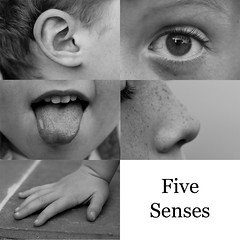| 7170809872 | Syntax | the correct way to form a sentence Ex: People who talk while chewing food don't have manners vs While chewing food, people who talk don't have manners | | 0 |
| 7170809873 | Diction | The style or the words used in and form of writing ex: Hey, what's up? Or I ain't go at not money. | | 1 |
| 7170810132 | Asyndeton | Sentence missing a conjunction ex: "I came, I saw, I conquered" | | 2 |
| 7170810133 | Polysyndeton | More than one coordinating conjunctions are used in a sentence ex: My mom told me to get the onions and the lettuce and the bread from the refrigerator. | | 3 |
| 7170811046 | Connotative Diction | Word has a different meaning then what it is describing ex: Home might refer to family and comfort. | | 4 |
| 7170811255 | Denotative Diction | Point blank definition of a word ex: rock = stone | | 5 |
| 7170811256 | Alliteration | Words in a sentence having the same letter/sound ex: April ate apricots and apples at her aunt's farm. | | 6 |
| 7170811646 | Euphonious Language | Phrases that have a lovely tone when spoken ex: Season for crisp and cool weather | | 7 |
| 7170811647 | Inversion | The opposite or reverse of something ex: What a beautiful image it is! | | 8 |
| 7170811890 | Parallelism | Things corresponding in some way ex: He likes cooking and to read. | | 9 |
| 7170811891 | Anaphora | A word meaning the same thing as another to replace it in a sentence; some words repeated to show significance ex: "Every day, every night, in every way, I am getting better." | | 10 |
| 7170812041 | Tone | The sound in which a sentence is said in ex: bitter, callous | | 11 |
| 7170812042 | Pedantic | Literal accuracy of something ex: the Great Gatsby's perfectionist outlook | | 12 |
| 7170812242 | Hubris | Self pride, egotistical ex: prendergast in The Devil in the White City. | | 13 |
| 7170812243 | Dialect | Specific language for a region or group ex: Spanish, French | | 14 |
| 7170812943 | Colloquial Langage | Words/language used by everyone everyday ex: wanna, gonna | | 15 |
| 7170812944 | Onomatopoeia | Word used for a sound affect ex: sizzle, buzz | | 16 |
| 7170813346 | Abstract vs. Concrete | Concrete: words detectable by sense she and names ex: peoples, animals abstract: words not detectible by senses ex: actions, ideas | | 17 |
| 7170813347 | Prose | Words written or spoken in its ordinary form ex: The sloth is one of the slowest animals. | | 18 |
| 7170813348 | Slang | Not formal language ex: basic, bae | | 19 |
| 7170814527 | Allusion | To hint or remark on ex: It's Christmas! Don't be a Scrooge! | | 20 |
| 7170814528 | Antithesis | Someone or thing that is the direct opposite ex: "Many are called, but few are chosen." | | 21 |
| 7170814731 | Eupheism | Words substituted for others that aren't considered harsh ex: passed away = dead | | 22 |
| 7170814732 | Hyperbole | Exaggerations not taken literally ex: I am so hungry I could eat a whale. | | 23 |
| 7170814733 | Imagery | Words depicting images seen in someone's mind ex: A blanket of snow covered the vast grounds. | | 24 |
| 7170814984 | Zeugma | Word is describing more than one thing ex: the family left the funeral with weaping eyes and hearts. | | 25 |
| 7170815175 | Situational Irony | Situation's actions that have the opposite effect then what it is meant to show | | 26 |
| 7170815176 | Juxtaposition | Two things being placed side to side that contrastes each other ex: The hot weather evaporates next to cold drinks. | | 27 |
| 7170815915 | Litotes | Affirmative understatement ex: You won't regret it! | | 28 |
| 7170815916 | Pun | Joke that uses different meanings of words that sound similar ex: a boiled egg is hard to beat | | 29 |
| 7170815917 | Oxymoron | Terms that contradict each other appear together ex: cruel kindness | | 30 |
| 7170816233 | Paradox | Statement that contradicts but is actually true ex: i know one thing; that I know nothing | | 31 |
| 7170816234 | Personification | Giving something human qualities ex: the rain danced across the sky | | 32 |
| 7170816668 | Metonymy | Word used for a substitution for something else ex: suit=business aspect | | 33 |
| 7170816669 | Synecdoche | Phrases that represent viceversa or whole ex: bread: food right money | | 34 |
| 7170817058 | Irony: Verbal & Situational | Situational: exspect one thing to happen but it's different ex: cartoons or movies verbal: express opposite meaning in verbal communication ex: sarcasm | | 35 |
| 7170817059 | Anecdote | Short story about a real person or topic ex: story about a child's birth to explain it to someone else | | 36 |
| 7170817060 | Theme | The whole point that an author is trying to get across ex: courage, betrayal | | 37 |
| 7170817445 | Double-entendre | Two meanings of a word; one is indecent ex: innocent or innocuous | | 38 |
| 7170817446 | Archetype | Certain something or person ex: the bully | | 39 |
| 7170817548 | Inversion | The opposite or reverse of something ex: What a beautiful image it is! | | 40 |
| 7170817787 | Metaphor | Phrase applied to something that is not literally acceptable ex: curtain of night | | 41 |
| 7170817788 | Simile | Comparing one thing to another ex: as silent as a snake | | 42 |
| 7170818232 | Extended Metaphor | Comparison of two things that are not alike ex: comparing Juliet to the sun | | 43 |
| 7170819624 | Rhetoric | A way of persuasive intent/ writing ex: will you help find a cure for breast cancer by donating a dollar? | | 44 |
| 7170819625 | Ethos | Part of a culture or spirit that is manifested in it and belief and background ex: when a doctor says: as a doctor, I am qualified to tell you that this treatment will work the best | | 45 |
| 7170819626 | Pathos | Something that appeals o someone so emotions ex: if you don't make a decision, you will fail the class. | | 46 |
| 7170819945 | Logos | Something that appeals to logic point of reasoning ex: wash your hands to stop spreading germs | | 47 |
| 7170819946 | Rhetorical Question | A question not meant to be answered ex: why not? | | 48 |
| 7170820586 | Evidence | Using information to back up a statement ex: using a quote to back up an idea | | 49 |
| 7170820587 | inductive Reasoning | Used in predicting something to be true ex: I believe that the plant will grow if I water it. | | 50 |
| 7170820830 | Deductive Reasoning | Top-down logic; conclusion based on inductive reasoning ex: all men are mortal | | 51 |
| 7170820831 | Analogy | Comparison of two things things for clarification ex: the structure of an atom is like the solar system | | 52 |
| 7170821093 | Repetition | Saying something again ex: "let it snow let it snow let it snow" | | 53 |
| 7170821238 | Antanaclasis | Word that is repeatedly use does "while we live, let us live" | | 54 |
| 7170821239 | Invective | somethimg that isn't insulting or abusive ex: calling some a chicken if they don't do something | | 55 |
| 7170821495 | Bathos | Anticlimax by not meaning to switch moods ex: she spent her last moments doing what she loves, accidentally burning cookies | | 56 |
| 7170823510 | Chiasmus | Words repeated in reverse order ex: never let someone trip you or you trip them | | 57 |
| 7170829722 | Connotation | Something is implied apart from what the word is actually describing ex: home= safety or family | | 58 |
| 7170829923 | Denotation | Point blank definition of a world ex: rock=stone | | 59 |
| 7170830539 | Ad Hominem Fallacy | A reaction or conversation that is against what someone else is saying ex: political debates | | 60 |
| 7170831330 | Pathetic Fallacy | Human feelings and responding to things not human ex: trees that happy | | 61 |
| 7170831821 | Logical Fallacies | Error in reasoning that puts down augments ex: evasion, begging the question | | 62 |
| 7170831822 | Understatement | Demising something that has greater value ex: the shot doesn't prevent the disease from stopping | | 63 |
| 7170832412 | Ad Populum Fallacy | Something is true because most people believe it ex: trump is the best president we have ever had | | 64 |
| 7170832413 | Begging the Question | Argument assumes something without evidence ex: chocolate is healthy because it is good for you | | 65 |
| 7170832832 | Counterclaim | Claims to go against a previous claim ex: when a criminal changes plea from not juilty to juilty | | 66 |
| 7170832833 | Rebuttal | Using arugument to weaken the argument of another ex: trump and Clinton election debates | | 67 |
| 7170833503 | Hasty Generalization | Conclusions not justified logically or sufficiently ex: arguments | | 68 |
| 7170834286 | Altruism Apeal | Not selfish in the regard others ex: Obama care | | 69 |
| 7170834287 | Thesis/Claim | Focus of your work/writing ex: in Devil in the White City, the thesis is about the beginnings and firsts in chicago and USA | | 70 |
| 7170834773 | Enumeration | Saying more than one thing one ex: "I have a dream" speech | | 71 |
| 7170834774 | Satire | Use of humor or exaggeration ex: Saturday night lovebirds | | 72 |
| 7170835149 | Sarcasm | Extent on a phrase with more meaning ex:"yeah right" | | 73 |
| 7170835150 | Syllogism | Conclusion drawn from two or more perspectives ex: all men are mortal | | 74 |
| 7170835400 | Argument | Having a different opinion about something ex: political debates | | 75 |
| 7170835703 | Implicit vs. Explicit | Implied vs somethinng directly stated ex: their might a test vs there is a test | | 76 |
| 7170836142 | Subjective vs. Objective | Perspective based on personal aspects vs perspective that's not influenced ex: pics of animals in need vs picking a pencil | | 77 |
| 7170836509 | Qualification | Having a quality to make someone sutible for a job ex: a degree to teach students | | 78 |
| 7170836510 | Clause | A part of a sentence ex: since she reads different books | | 79 |
| 7170839996 | Phrase: Participial | Verb that endangers in -ed or -ing and motifys a noun ex: planing to graduate in May | | 80 |
| 7170839997 | Phrase: Appositive | Renames another noun ex: the insect, a fly, is stuck in the window | | 81 |
| 7170840636 | Phrase: Infinitive | Words that consist of an infinite and a modifier ex: April ran to avoid being late | | 82 |
| 7170840637 | Phrase: Prepositional | Phrases that shows the connection between a noun/pronoun to a word or object ex: over the mountain | | 83 |
| 7170840982 | Phrase: Absolute | What's the phrase that modifies an independent clause a group of words as a whole ex: i will be back Thursday, weather permitting | | 84 |
| 7170840983 | Sentence | A group of words that form into a meaning Ex: everyday language use | | 85 |
| 7170841249 | Paragraph | Contains five or more sentences on one topic Ex: pages in books are written with paragraph format | | 86 |
| 7170841250 | Fragment | Part of a sentence that doesn't make sense by itself ex: because he was hungry | | 87 |
| 7170841251 | Voice | The way someone talks or writes ex: authors of books | | 88 |
| 7170841900 | Active Voice | The subject in the sentence is doing the acting well the room is the active voice Ex: khloe touched the plate | | 89 |
| 7170843718 | Passive voice | Subject of a sentence acted by a verb ex: the paper was thrown by the boy | | 90 |
| 7170843719 | Novel | A book that has length with characters and actions ex: Jane eyre | | 91 |
| 7170844568 | Non-fiction | A piece of work that is 100% factual ex: textbook | | 92 |
| 7170844569 | Historical Fiction | A piece of work that was written in history but it's fiction ex: The Great Gatsby | | 93 |
| 7170845188 | Memoir | Somethings written from personal knowledge or a learned subject EX: advice | | 94 |
| 7170845189 | Point of View | A perspective in which someone is reading or talking in ex:we talk in the first person | | 95 |
| 7170845456 | Setting/Occasi | Where something takes place ex: Devil in the White City take some place in Chicago | | 96 |
| 7170845457 | Audience | The people who are listening or reading a piece of work ex: the class was the audience for a book | | 97 |
| 7170850711 | Autobiography | A book you write about yourself ex: the autobiography of Benjamin franklin | | 98 |
| 7170850712 | Biography | book written about someone by someone else ex: The Life of Samuel Johnson | | 99 |
| 7170850913 | Diary | A day to day work about someone's life normally their own ex: Ann Franks's diary | | 100 |
| 7170851109 | Expository Essay | This essay hasn't someone to investigate an idea or evidence ex: scientific research and reasoning | | 101 |
| 7170851366 | Narrative Essay | An essay normally told from an authors point of view in their feelings ex: essays we write for class | | 102 |
| 7170851937 | Cause and Effect | Explaining what happened and why it happened ex: a bridge on the interstate collapsing | | 103 |
| 7170851938 | Compare and Contrast | Seeing how things are similar and different ex: looking at an apple and an orange | | 104 |
| 7170851939 | Letter | Composed to send information ex: writing a letter to your parents about camp | | 105 |
| 7170852154 | Allegory | Some form of art or literature that normally has a hidden meaning or a more behind the story Ex: the Lion, the Witch, and the Wardrobe | | 106 |
| 7170855934 | Ambiguous Ending | It's an ending that is normally unclear or big but it leaves you not really knowing what the big picture was Ex: some people who try to go around about discussing something | | 107 |
| 7170855935 | Parable | short story used to illustrate a moral or a lesson that should be used by everyone ex: african folk tales | | 108 |
| 7170857308 | Speaker | Someone who is talking ex: character in a book | | 109 |
| 7170858580 | Purpose | Reason something was written ex: Devil in the White City was written to show todays connection with the past | | 110 |


















































